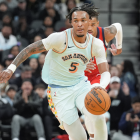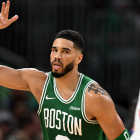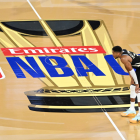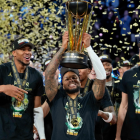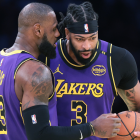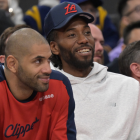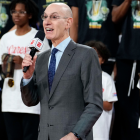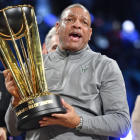The Chicago Bulls could be a total mess next season. No one knows how Rajon Rondo, Dwyane Wade and Jimmy Butler -- all of them best with the ball in their hands, none of them a reliable 3-point shooter -- will mesh on offense.
No one knows whether the addition of Robin Lopez will be enough to maintain a decent defense. The Bulls have talent, though, and coach Fred Hoiberg insisted last month that "great players always figure it out." That statement is not exactly true, but it sounds good.
As the season approaches, there is no reason for Hoiberg to be anything but confident when speaking publicly. In a recent interview with CSN's Vincent Goodwill, he compared Chicago to the 2003-04 Minnesota Timberwolves. The Wolves added Sam Cassell and Latrell Sprewell (and Hoiberg) in the summer of 2003, and then they won 58 games, with Kevin Garnett winning MVP.
"We'll have to have the right rotations out there," Hoiberg said. "It probably won't be the first week where we're clicking and everything is determined."
He made the comparison in terms of the circumstances to perhaps the best team he played on, the 2003-04 Minnesota Timberwolves. Latrell Sprewell and Sam Cassell were added to a team that couldn't escape the first round and they went to the Western Conference Finals on the back of MVP Kevin Garnett.
"We had three strong personalities, three very good players," Hoiberg said. "It took a while but once it got going we were off and running and had the best record in the West."
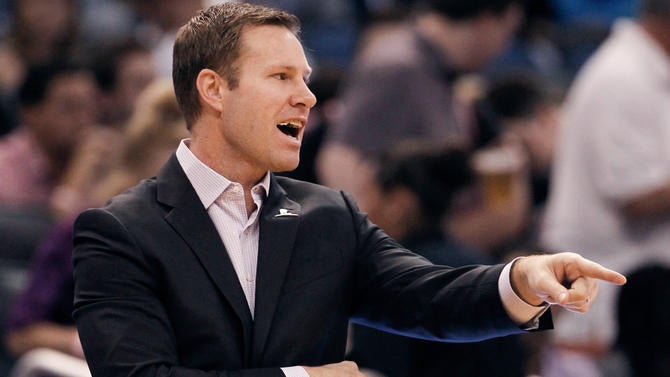
Here's how the comparison makes sense:
- Garnett was clearly the Wolves' franchise player. Cassell and Sprewell were brought in to help him get to the next level. Both Wade and Rondo have already declared that the Bulls are Butler's team.
- Cassell was a point guard with 10 years of experience, just like Rondo. Wade is a wing player who has been around even longer, just like Sprewell.
- Aside from the three big names, Minnesota did not have a ton of other ballhandlers. That meant Garnett, Sprewell and Cassell could all have high usage rates. Everybody else was there to play a role. This is pretty much the same in Chicago.
That's all surface stuff, though. Whereas Butler is a young star trying to figure out how to be the No. 1 guy, Garnett was an established superstar and a leader. He had already been in the league for eight years and played in six All-Star Games (it would have been seven had the All-Star Game not been canceled in 1999 because of the lockout). Further, Cassell, Sprewell and Garnett were a better natural fit for these reasons:
- Cassell made 39.8 percent of his 3-pointers that season. And while Sprewell only made 33.1 percent of his, he was at least willing to take them. Spacing is much more important these days, but you wouldn't necessarily know it by the way Chicago has constructed its roster.
- Minnesota's Big 3 all played distinct positions, and their skill sets complemented each other. When Cassell wanted to post up, Garnett was comfortable 18 feet away from the rim. Wade is nominally a shooting guard but he's essentially been a lead guard his whole career. Butler declared himself to be a point guard this time last year, and his partnership with Derrick Rose was sometimes difficult. Essentially, the Bulls have three perimeter playmakers who don't stretch the floor, which makes things complicated for the coach.
- Garnett could play with pretty much anybody. It's not an affront to Butler to say that he is not on the same level as the future Hall of Famer who was in his prime. On defense, Garnett set the tone, communicated and erased teammates' mistakes. On offense, he could facilitate, set screens and dominate when he needed to. Butler is one of the best two-way wings in the league, but he can't do everything that Garnett did and it will be a challenge for him to be the best version of himself with Rondo and Wade next to him.
Surely, there are lessons that Hoiberg can take from being on that Minnesota team. He knows that it will be crucial to get everybody on the same page and make the role players feel involved. He knows that it can be tricky to manage the egos of star players. It would be wildly optimistic, however, to expect that these Bulls will experience anything close to that level of success. If they simply manage to be a normal, cohesive team, then Hoiberg will have done a good job.









